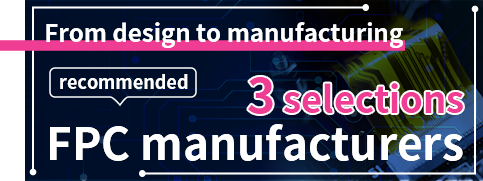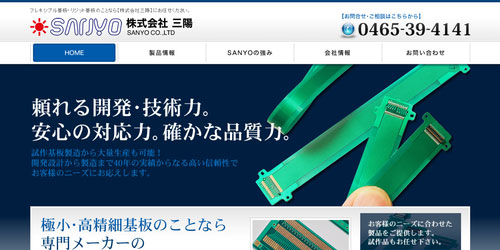Flexible PCBs (FPCs) for Automotive Applications
There are many types of flexible printed circuit boards (FPCs), but the criteria for selecting those used in automotive applications are somewhat unique.
In this section, we explain how to choose FPCs for automotive use and why certain types are recommended. If you're currently considering which flexible PCB to use for automotive applications, this is a must-read.
What Makes an FPC Suitable for Automotive Use?
Focus on Heat Resistance to Meet Automotive Standards
When selecting a flexible PCB (FPC) for use in vehicles, it is essential to ensure that it meets automotive-grade standards.
Since cars often operate in high-temperature environments—such as those near engines where heat buildup is common—FPCs with excellent heat resistance should be prioritized. These automotive FPCs offer properties that differ from conventional flexible PCBs.
Key Features
Designed to Withstand Temperatures Above 100°C
Heat-resistant flexible printed circuit boards (FPCs) are specifically engineered to withstand high temperatures exceeding 100°C.
Standard FPCs typically offer heat resistance only up to around 80°C, which may be insufficient for automotive use. In automotive environments, where components are exposed to engine heat, oil, and lighting systems, robust thermal resistance is essential.
What sets high-heat-resistant FPCs apart is their ability to endure significantly higher temperatures than conventional models. This makes them ideal for applications such as LED lighting systems, engine control sensors, powertrains, and battery management and monitoring systems.
Source: OKI Electric Cable begins sales of heat-resistant FPCs for high-temperature environments (2016)https://www.okidensen.co.jp/jp/news/2016/release_160530.html)
Source: High Heat-Resistant FPC|Product Information|Sumitomo Electric Printed Circuit Co.http://www.sei-sect.co.jp/products/heat_resistant.html)
Recommended Manufacturers
Superior Heat Resistance as a Core Strength
As mentioned above, the primary reason these FPCs are well-suited for automotive use is their exceptional heat resistance. Their ability to function reliably under high-temperature conditions
That said, depending on the application, conventional FPCs may still be a viable option—particularly in areas of the vehicle not exposed to heat. In such cases, factors like design flexibility and overall reliability should be considered as part of the selection process.
For more information on manufacturers that supply flexible PCBs, see our detailed guide.
See the List of Manufacturers
Handling Flexible PCBs
Summary
Meeting Automotive Standards Is Key
When choosing flexible printed circuit boards (FPCs) for automotive use, confirming whether the product meets automotive-grade standards is essential.
In areas exposed to high heat, selecting a model with strong heat resistance is critical On the other hand, in locations with minimal heat exposure, thermal resistance may be less of a priority.
Start by clearly defining the performance requirements for your specific application.
Related Pages You May Also Like




